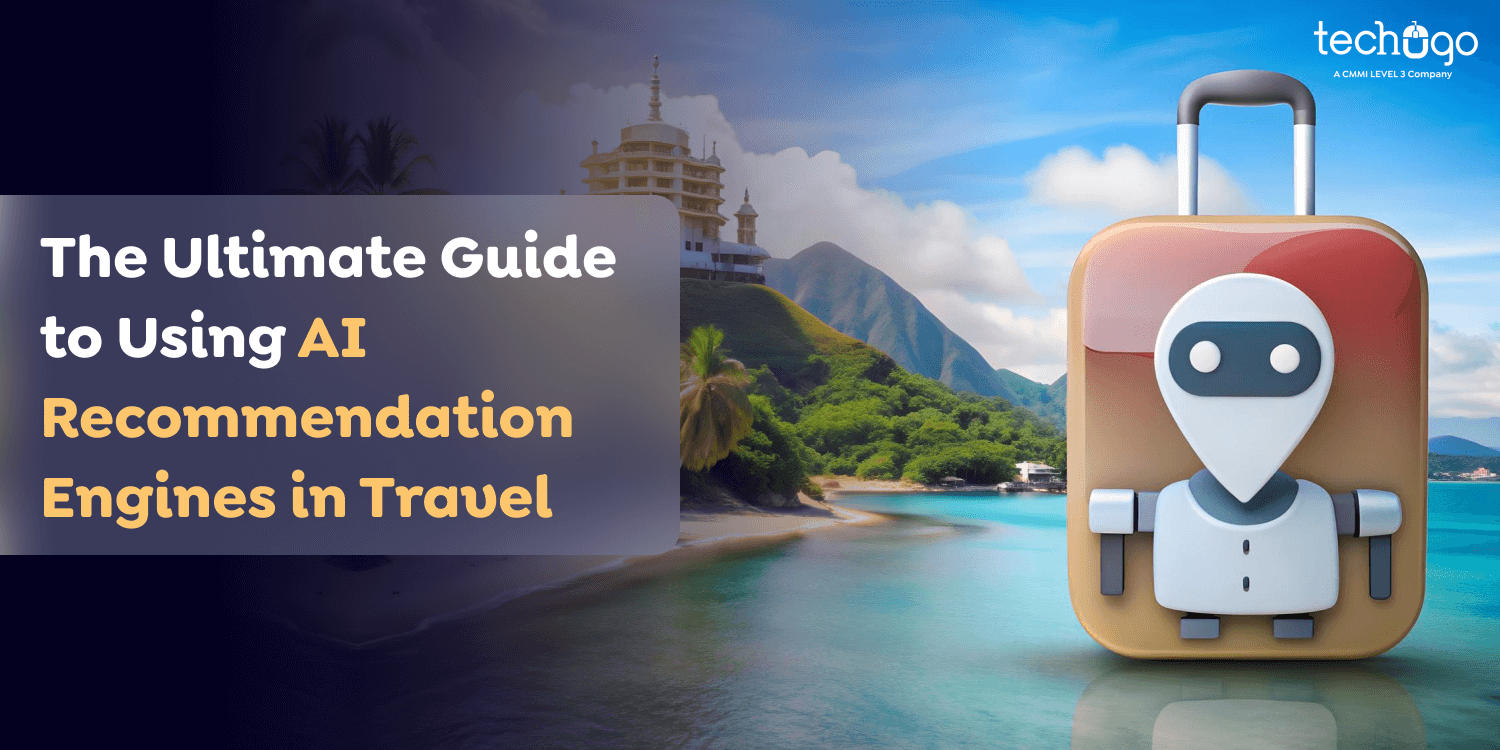24 Oct 2024
Unlocking Growth: The Importance of Choosing the Right Travel App Development Company
Matthew Connor
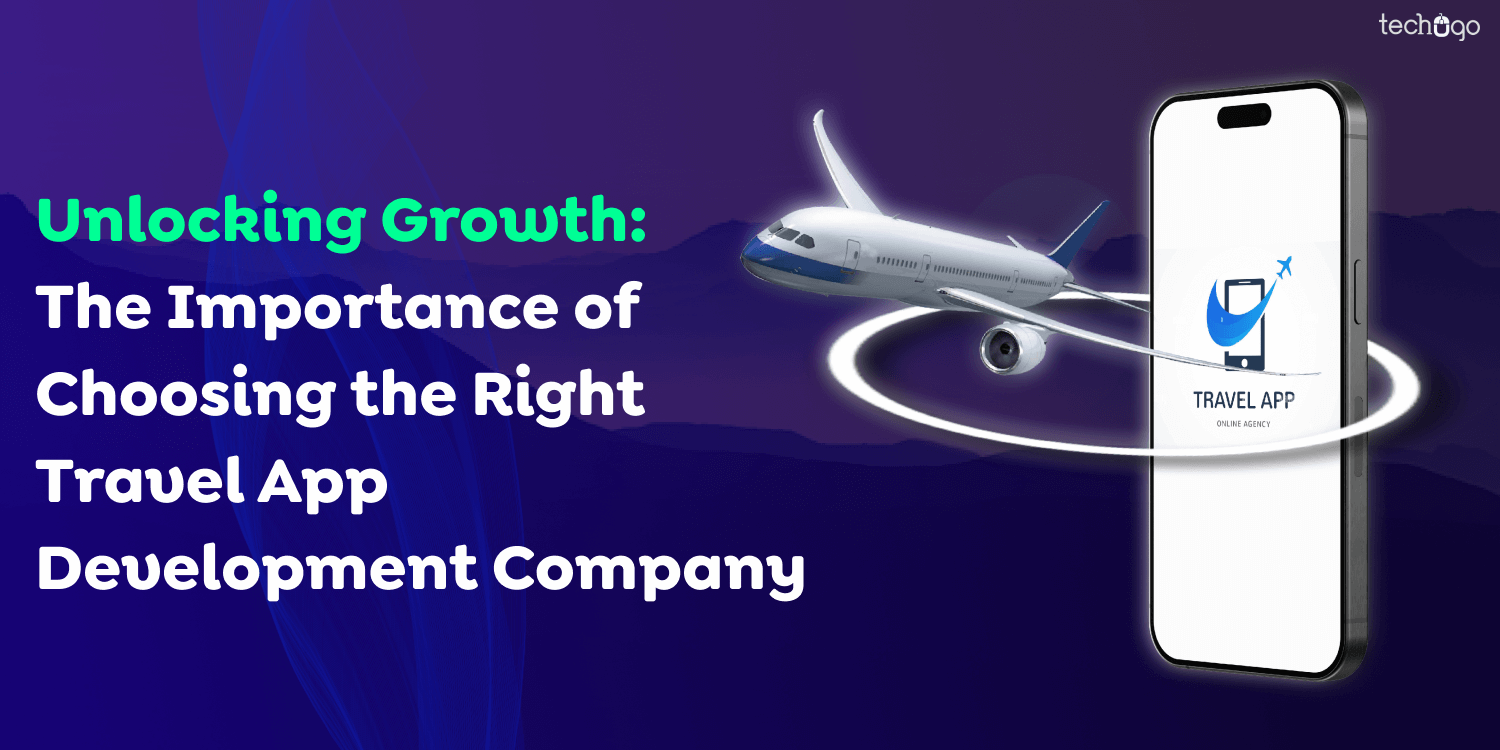
With 67.8% of all traffic to the travel industry originating via mobile devices, it’s not a surprise that apps for travel are becoming more important. From planning travel and trip booking to being connected on the go, apps are the most effective travel companions and tour guides that travelers can get.
In the same way, travel apps provide companies with an exclusive brand identity and growth potential. This is why many travel firms invest in developing travel apps and mobile digital transformation with immense satisfaction.
The selection of the best travel app development company is vital, as the process typically requires specific expertise in app development, integration into travel inventory, linking to GDSs, and ensuring the app assists users through every step of their journey.
We’ve put together this extensive guide for developing travel apps to provide you with all the information you should learn about mobile applications, app development costs, and the development of ticket booking apps, and make sure you take advantage of the possibilities that travel apps offer.
Let’s look at developing mobile-friendly travel apps and the cost and learn how apps could change the way tour operators, OTAs, startup companies, and other travel businesses work.
Facts About the Travel App Industry
The market for travel apps has seen rapid growth and changes in the last few years, altering how people plan or book travel. Below are a few interesting statistics and facts that show the current state of travel apps.
The fast-growing mobile travel apps market is anticipated to increase to $11.6 billion by 2025, according to Statista. This suggests an increase in investment and growth in the industry.
Users’ acceptance:
More than 60% of people who use smartphones have at least one travel app installed on their devices, which demonstrates the widespread use and acceptance of apps related to travel, as per eMarketer.
Booking Convenience:
According to a Google study, 70% of travelers prefer applications on mobile devices to reserve hotels or flights, highlighting the user-friendliness and efficiency of travel apps.
Individualization and Recommendations:
Travel apps that provide specific recommendations use the most recent technologies, like AI or machine learning. Nearly 80% of travelers are pleased with recommendations personalized to their needs based on their preferences, which increases user enjoyment and satisfaction.
Safe and Navigability:
Mobile apps that aid in traveling and offer real-time information, security warnings, and advice on navigation are highly valued by travelers. According to TripAdvisor, around 65% of people use mobile apps for navigation and to find information about safety when traveling.
Also Read : How to Create a Diet and Nutrition Tracker App Like Lifesum
Types of Travel Apps
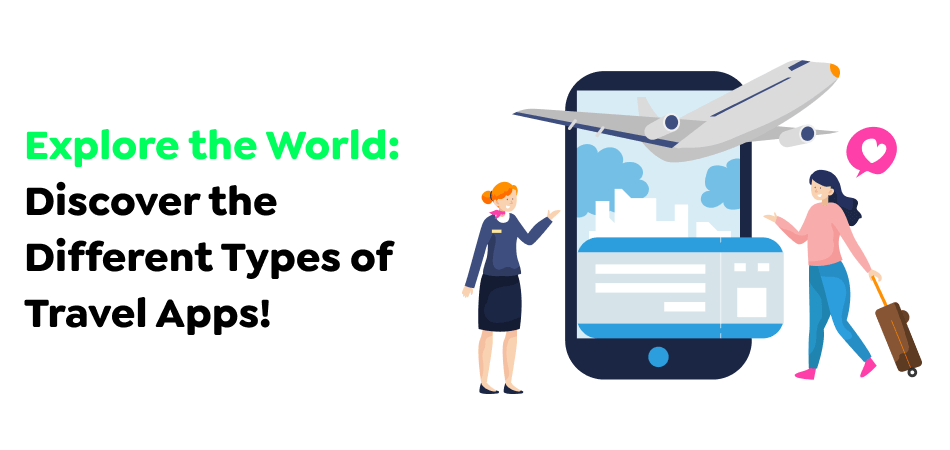
Numerous travel applications are coming to market, and the hospitality and tourism industries are increasing customers’ expectations and experiences. Here’s a listing of different kinds of travel apps that you can purchase to bridge the gaps in customer service and experience for your hotel’s operations.
Travel Itinerary Planning Apps
A travel planning app that helps users plan their travel routes lets users design the overall itinerary for their trip. This feature added to your travel agency’s online offerings will draw the attention of travelers while streamlining their travel planning process. It will also reduce the time required to create an itinerary that covers multiple destinations simultaneously.
Through these applications, users can input all the information about their trip, including flights, hotels, flight reservations, and other expenses, and control everything from the same app. The application will manage all their trip details and ensure they’re on track.
Some examples of these apps are Wanderlog, Sygic Travel, and TripIt.
Ticket Booking Apps
The ticket booking app development allows businesses to develop a dedicated application that will enable travelers to book flights or train tickets for an exact location. The applications allow users to search and compare flight and train availability alternatives for their desired dates. They also provide the best choices after reviewing all third-party websites.
With the ticket booking application, users get push notifications about their preferred dates when prices fall, and they can help plan their entire journey by providing tickets for flights, trains, and buses. Additionally, your app should offer discounts and special offers, such as coupons and “first booking” discounts, to help travelers book the most beneficial bargains.
Examples of these applications include Expedia, Kayak, and Skyscanner.
Hotel Booking App
Using the app to book accommodations, you can provide travelers with information on different hotels in the area. With these apps, users can review and evaluate prices and other facilities like the type of room, pictures of their rooms, breakfast options, Check-in and check-out times, and the views from the balcony. They can also pick the most affordable hotel deal.
These applications comprise Booking.com, Hotels.com, and Agoda.com.
Navigation Apps
Suppose you design an application to help users figure out the most efficient way to get from the station or airport to places they require in a particular city. Navigation apps have features that include the calculation of distances between the current location from where it is located to your destination, displaying the traffic speed, and connecting contacts to track the most recent checking-ins to users’ contacts. They also offer the most efficient way to travel to airport hotels quickly while reducing traffic jams.
Some examples of these applications are Google Maps, Apple Maps, and Komoot.
Travel Insurance Apps
Ensuring you have insurance to protect your trip is essential for every traveler. Travel insurance apps offer protection against travel-related incidents like theft of luggage and loss of luggage, travel cancellations and losing passports, medical emergencies, airline cancellations, or hotel reservations etc. They are commonplace for long-haul flights. So, hospitality businesses can use these apps to help travelers book insurance and track their travel insurance policies in the past and the most current coverage to plan their following travel plans.
The applications include Goose Travel Insurance, Allianz TravelSmart, and AIG Travel Assistance.
Travel Guide Apps
Creating an app as an itinerary guide will give travelers details about places of interest, events, and eateries within the specific area. The app will include information on the most reliable restaurants, guides, transportation, and city tourist spots. It can aid travelers in choosing the most suitable restaurant for dinner or booking an expert tour guide with the highest ratings to enhance their overall enjoyment.
Some of the most famous apps for travel guides are GetYourGuide, TripAdvisor, and Viator.
Transportation Apps
When visitors visit this city on their first visit and wish to see the city, they’ll utilize a mobile application to make reservations for taxis and arrive at their desired destination quickly. If you create an application for transportation, an app for transportation could provide your customers taxi, bus, and taxi reservation services. The app can provide options such as real-time tracking of rides, driver details (driver name and the Car’s RC number), and the history of trips. It can also help travelers get to their destination faster and less stressed.
Some examples of these apps are Uber, Ola, and Lyft.
Also Read : Image Recognition Apps: Revolutionizing User Experience Across Multiple Sectors
Steps to Create Your Travel App
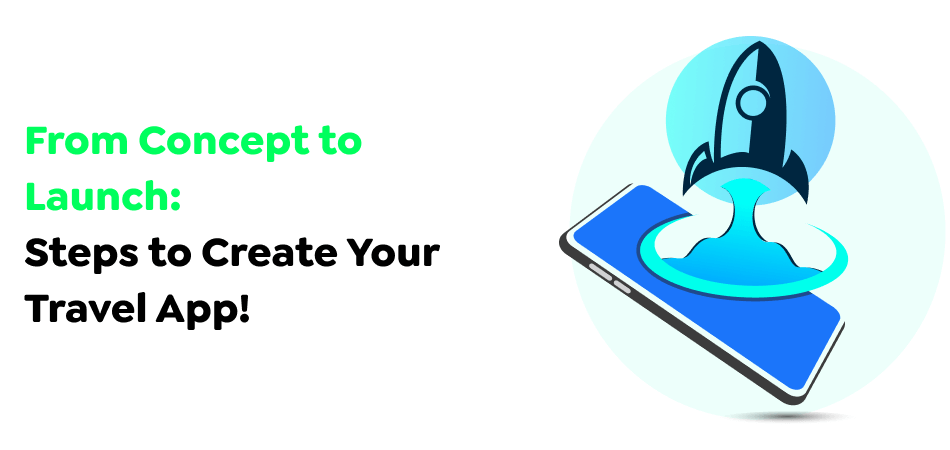
Every successful travel app, such as Expedia, Booking.com, and Airbnb, has utilized a successful application development process to successfully launch its products into the market.
Market Research and App Ideation
To get started on developing apps, in-depth market research is crucial to ensure that a travel app is successful in the market. You should study the trends in the market, as well as any gaps that need to be filled, which you could fill with solutions. When researching, analyze your target audience and brainstorm what kind of tourism apps could provide the best solutions.
Determine App Features
Once you’ve done market research and identified your intended users, the next step is to choose what features to include in your app. Based on your particular needs, preferences, and budgetary limitations of the users you intend to target, the features you choose to include can vary from simple applications to highly complex ones with customized features and functionalities.
Consult and Hire a Reputable Travel App Development Company
When your app’s features and its type are determined, It is time to start developing. Making this process yourself can cost you a lot of time and money, requiring an expert understanding of the technological stacks. Thus, working with an outsourcing tourism and travel app development company has numerous advantages.
Dedicated front-end/back-end developers and designers UI/UX specialists collaborate with business analysts, project managers, DevOps engineers, and team leaders to satisfy requirements while employing suitable development methodologies (native and cross-platform). They know what is required and use proper development techniques (native and cross-platform) to deliver successful solutions specifically tailored to the success of businesses!
Minimum Viable Product Development
Developing an MVP (minimum viable product) is the best strategy to make your mobile travel app profitable over the long haul. An MVP offers users feedback that can be tested before release to make improvements before generating buzz among targeted users and boosting the chances of its achievement.
App Testing and Quality Assurance
After creating your MVP and making adjustments in response to user feedback, our engineers put the app through further QA tests. They carry out rigorous testing of your app, security compliance checks, and quality standardization audits to ensure that your app stands out from the crowd and can be easily accessed by end users.
Launch and Maintenance of an App
After all testing, quality checks, and development stages are completed successfully, your app for tourism can be launched in its app stores (App Store and Google Play). Following the release of the travel app, businesses typically conduct maintenance projects designed to improve functionality, fix any bugs (if they are present), implement updates/improvements when needed, and enhance the performance of their app over time.
Also Read : How to Create a Video Editing App Like Splice: From Concept to Launch
Travel App Development Features for Customer Panel
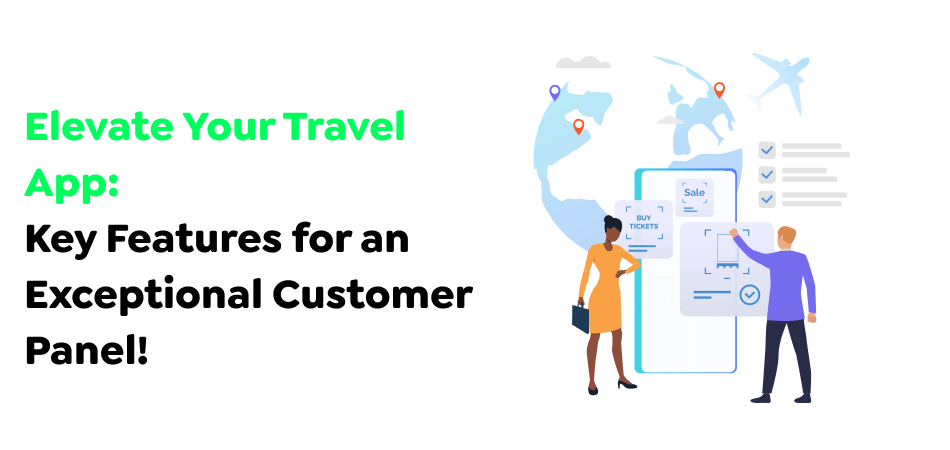
In addition to being one of the significant elements of a travel app, these features are included to provide customers with an exceptional experience. It’s also crucial to keep them interested throughout the purchase.
Log In/ Sign Up
Logging in is an essential feature in any mobile application, not just a travel one. Users can sign up to the company and save personal data like names, email addresses, and numbers, along with the address of their residence, as well as other personal preferences. These are used to personalize users’ experiences on the platform.
Search Functionality
Being able to browse within your travel app requires you to focus and work. Because your travel app functions as a search engine and will answer your questions about travel, such as information on your destination, hotel or flight reservations, or any other similar queries, the search bar right at the very top entices users quickly by allowing them to find information within your application easily. This improves user experience inside the application, is less frustrating, and enhances satisfaction for every user.
Hotels Search
Because accommodation is a crucial aspect of a trip, having the option to search for hotels on your app will allow you to meet travelers’ various needs, such as location and price, amenities, stars, and other features. You can also add features like filters for more in-depth hotel searches. For instance, people prefer staying at a hotel with amenities like geysers, a breakfast buffet, laundry service, or welcome drinks, among other facilities. The important thing here is being as exact as possible, sufficient to prevent confusion.
Flight Booking
A function for booking flights within the travel app allows users to receive live information about flights to the desired location on the chosen dates, such as seats, flight availability, roundtrip or one-way information, and many more. The basic principle that the travel app developers will use is to make this feature as easy as possible for travelers.
For example, it can provide baggage rules and fare regulations and features like sorting and filtering data using various options like departure time, duration of trip and the length of layover, and refundable fare refunds. It is crucial to make it simple for users to follow the application and appreciate the ease of every stage of travel.
Trip Details
The feature, similar to “Trip details” or “my booking,” as an additional section, will allow your clients to look up their travel history and the details for their trip in the near future, including the tickets for the flight they’ve booked as well as the accommodation they booked. This feature allows customers to keep a record of the history of booking their trip and the cancellations and payments they’ve made that they may want to revisit soon.
Currency Converter
If your app allows users to travel worldwide and convert currencies, a currency converter is a crucial feature to include. Be sure to show the rates of conversion in real time, such as dollars ($) and pounds (PS), and many more.
Contact Support
The primary thing you should be focused on when creating travel apps is making sure you’re accessible to the people you’re creating for when they require them. Even if you’re not physically present to communicate, you can integrate an AI-powered chatbot that can assist customers with inquiries regarding their travel plans. The AI chatbot can give them personalized guidance and suggestions to improve the experience of making trip reservations.
In-App Payment
The most crucial feature you need to incorporate into your travel application is an in-app payment option. It is recommended that you incorporate multiple payment options, including Paypal, Stripe, and GooglePay, into your travel booking app so that users can easily book their travel reservations using their preferred payment app.
Push Notifications
It is vital to keep customers engaged on your site. This feature lets you inform customers that the hotel will be open at the location they like, as well as the dates and rates. Because people are always looking for new deals or promotions, push notifications can encourage customers to take advantage of the offer immediately and make hotel reservations.
Additional Features
Although they aren’t necessary, There are “good add-on features” to make your travel app more efficient and pleasurable for users. These include:
Bundle Offers customers information about bundles of flights and hotels and Hotels + Car offers to make their travel experience more efficient.
Car booking makes your commute much easier in a new country.
The “Things To Do” tab gives users a peek into what is happening in the region during travel time.
Also Read : How to Develop a Cash Advance App Like MoneyLion: Key Features and Cost Insights
Travel App Development Features for Admin Panel
The admin panel is where the administrator is responsible for managing agents’ and clients’ information and facilitating the process for both. The most essential elements that must be included within this part of the mobile travel app are listed below.
User Management
The administration of users is essential to tracking details about customers, including payment details, booking information, and refund or cancellation information, as well as the administration of the user’s overall profile. This feature helps users keep each booking up to date.
Agents Management
The ability to manage agents is vital to ensuring that you have the information of third-party agents and property owners at the same time. This includes information about the package and property and also an overview of all property owners and agents.
Advertisement Management
It is essential that the app displays relevant advertisements and is overseen by the administrator. The administrator should ensure that the ads are appropriate to travel, conform to the company’s parent guidelines, and don’t overplay their roles, which may cause higher bounce-back rates.
Travel App Development Features for Agent’s Panel
If we’re speaking about agents, we refer to hotels or travel agents that will provide assistance to the app. Here’s a list of the most essential features that the agent panel of the travel app should include.
Property and Package Management
It’s among the most requested options on the agent panel, as it allows property managers and tour package owners to manage and alter the tour package, such as the date, number of guests in the room, and payment information.
Booking Management
The booking option permits the manager to decide whether to accept or deny a reservation based on the needs that comply with the hotel’s policies or other rules concerning smoking rooms, non-smoking rooms, and extra beds, for instance.
Payment Management
The administration of payments from a variety of clients simultaneously is vital for hotels to manage refunds, transactions, and taxes. This option makes it easier for customers to accept payment and refunds while maintaining a record of the invoices for completed reservations.
Analytics and Reporting
This analytics and reporting feature developed by a travel app development company will give hotel managers a dashboard that allows them to review information about their service or hotel, including the number of reviews, reservations, and payment details. This can help them make more informed decisions regarding their hotel and the services they offer to prospective customers.
Also Read : How to Create an App Like Clubhouse: A Step-by-Step Guide
Cost to Develop a Travel App
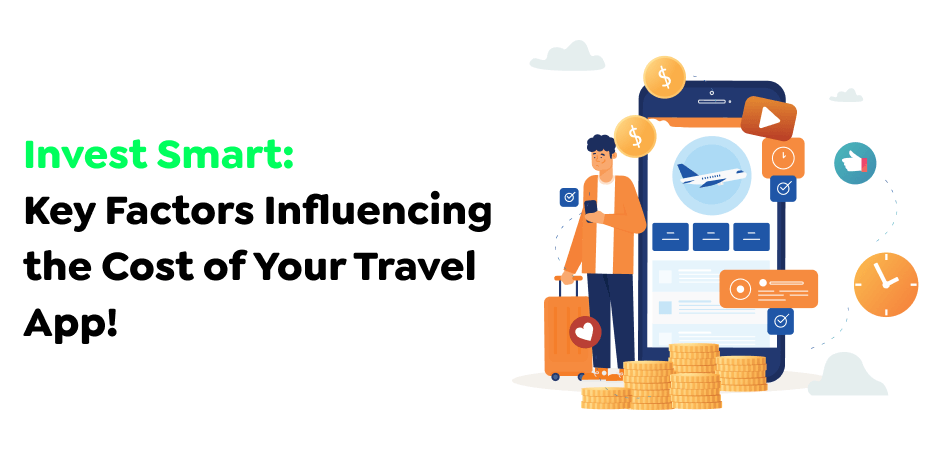
After we’ve looked at the concept and the examples of apps for travelers, let’s talk about the cost of creating the apps in various degrees of sophistication with the help of a travel app development company.
Here’s an outline of the estimated travel app development cost for each version:
Basic Travel Application:
Its features typically include basic schedule management, registration and login functions, booking and search functions, and the integration of payment processors. The cost of this app for tourism could start as low as $10,000 and go all the way to $30,000.
Medium-Level Travel App:
Its schedule management features more sophisticated search filters and more sophisticated user profiles. It could also include in-app messaging, ratings, and reviews. The estimated price is $30k to $100k.
Advanced Travel Application:
The version you are using may include AI-powered travel recommendations based on the user’s behavior and dynamic pricing, as well as Augmented reality (AR) to discover locations and various integrations with third-party applications. Advanced travel apps could be priced between $100,000 and $350,000.
To know the specifics of your travel application, list the specific needs before contacting a travel app development company in Canada.
So our team can provide an accurate estimate that aligns with your needs and financial budget.
Also Read : How Much Does It Cost to Build an App Like Flipp?
Essential Factors That Impact Travel App Development Cost
As a travel app business, you must set a budget to develop your travel application. As the number of features increases and the cost increases, so will the cost of an app for travel. We’ve assembled a list of the key factors that impact the cost of creating an application designed for mobile devices.
Platforms for Apps:
You must ensure the app is accessible to all. Select a platform built on the app’s market research. Based on the number of tests done, iOS is a better option. The iOS platform is less costly than the Android platform.
Team to assist in Mobile App Development:
An organization with the appropriate resources can provide end-to-end support for the development of apps. If you have a well-trained development team that includes managers, designers and managers and app developers to help you develop your app, you can ensure the best possible outcomes for your mobile app.
APIs Customized:
APIs are designed to meet an organization’s particular requirements. Therefore, creating custom APIs that fit specific business needs is vital. Investing in custom API development could affect your overall budget.
Geography: The geographical location you decide to use to develop mobile apps can impact the overall cost. For instance, the price per hour of the firm that develops apps is based in the USA and Canada, which directly impacts the budget for the development of apps.
Also Read : Building an App Like Netflix: Key Steps and Strategies for Success
Conclusion
While the costs of creating a travel app could vary, it’s vital that businesses approach this investment in a way that allows them to make informed decisions that are aligned with their goals and budget.
Additionally, staying fluid, innovative, and able to adapt is essential for the successful growth of your travel app in the ever-changing world.
At Techugo, we are aware of the importance of travel app development that not only fulfills your requirements but surpasses users’ expectations and excels in a competitive market.
Get In touch
We are excited to here from you and let’s start something special Together. Call Us for any inquiry.
Write us
sales@techugo.caJust a call away
About you


